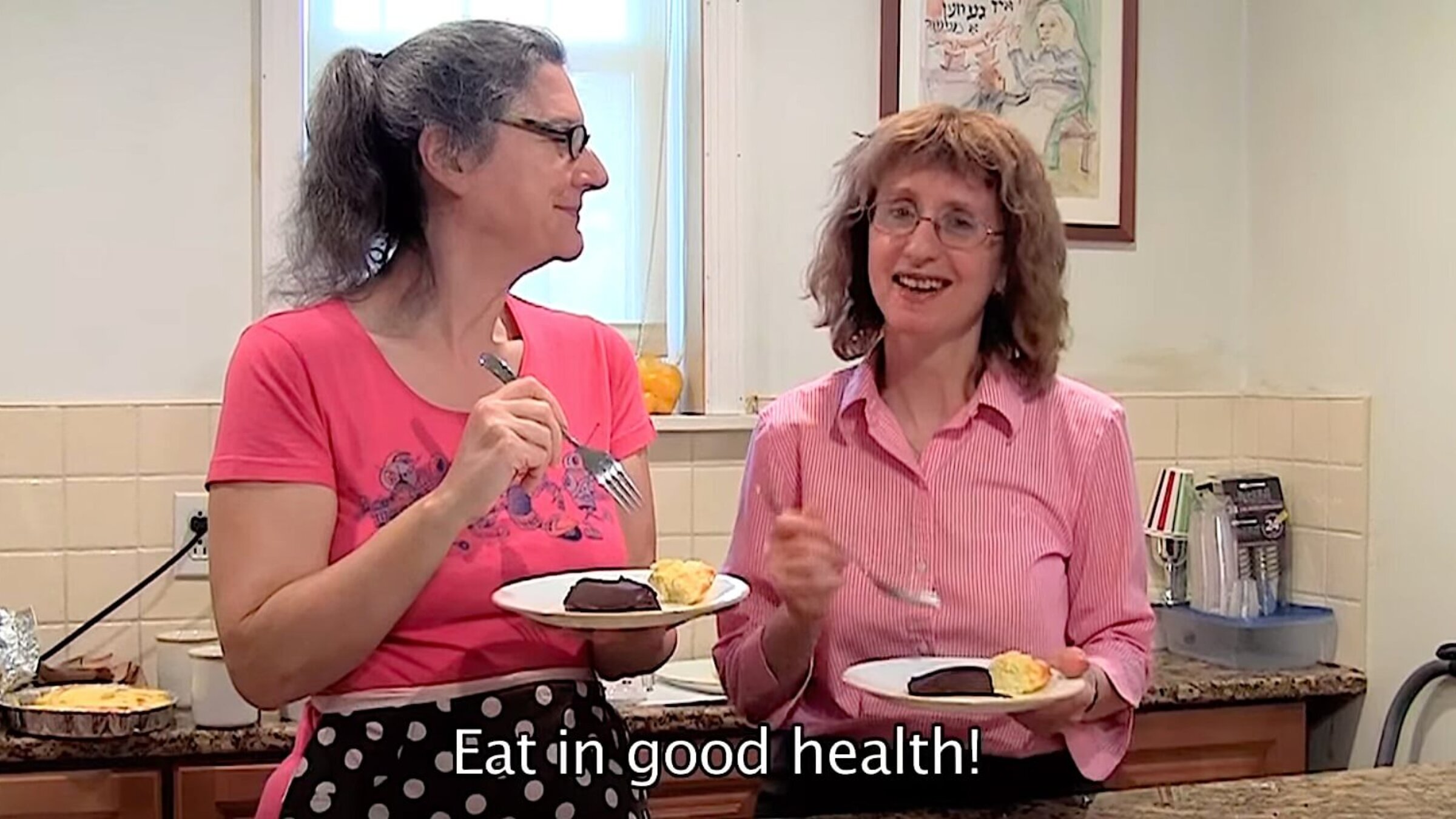WATCH: How to make dairy and vegan cheesecakes for Shavuot
The vegan version is made with chocolate and a surprise ingredient, that requires special tools to open!

Forward Yiddish editor Rukhl Schaechter and Yiddish food scholar and chef Eve Jochnowitz enjoy the fruits of their labor Photo by the Forward
Cheesecake is a Shavuot favorite in many Jewish homes. Whether you like the traditional kind or prefer a vegan alternative, the Forverts’s Rukhl Schaechter and Eve Jochnowitz have you covered in this episode of “Est Gezunterheyt” (“Eat in Good Health”), in Yiddish with English subtitles.
The traditional cheesecake recipe prepared here is made with farmer cheese, while the vegan version is chocolate-flavored and has a surprise ingredient, that requires special tools to open. (Can you guess what it is?)
The eating of dairy foods on Shavuot is universal among Ashkenazi Jews. Aside from cheesecake, popular dishes include cheese blintzes, noodle kugel made with sour cream or cottage cheese, and kreplekh (cheese-filled dumplings).
In an article published in Yiddish, Folklore scholar Itzik Gottesman writes that on the holiday, Jews also ate teyglekh in milekh (noodles in milk) and quotes Yankev Krepliak, an author of Yiddish children’s books, who recalled that people in his shtetl enjoyed “sweet coffee with freshly baked butter cookies, blintzes stuffed with cheese — and my mouth is watering, just thinking about it!”
So why do Jews eat dairy foods on Shavuot? As chef Liza Schoenfein explains here, there are several theories: One of Mount Sinai’s many monikers is Mount Gavnunim. Gavnunim means “many-peaked” in Hebrew and is related to the word gevinah, which is one of three Hebrew words for cheese. Eating cheese on Shavuot can be seen as a way of commemorating Moses receiving the Ten Commandments.
Another theory is that the eating of dairy may be tied to words from the Song of Songs, “Honey and milk are under your tongue,” and to the reference to Israel as the land of milk and honey. A third possibility: When the Israelites received the Torah, complete with its new set of kosher laws, they ate only dairy foods because they needed to figure out how to kasher the meat!

















